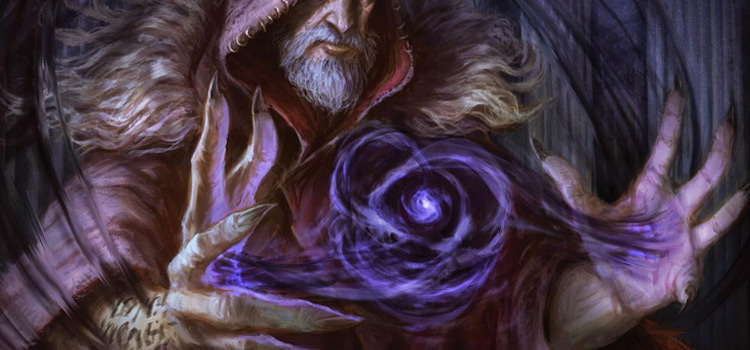Spells & Magic
Prepared SpellsSpell Casting Time
Spell Components
Spell Targets
Spell List
Wild Magic
Spells and Magic
There are three kinds of magic:
-
Arcane magic used by wizards, warlocks, sorcerers and bards, rely on an understanding — learned or intuitive — of the workings of the Weave that suffuses all existence.
-
Divine magic is granted by the Gods to their most devoted followers, clerics and paladins.
-
Primal magic which is provided by nature itself, or by ancestor spirits and filtered through nature. This magic is mostly used by druids, rangers and creatures close to nature, such as fey.

-
Familiars
Information about familiars can be found here.
-
Prepared Spells
If your class prepares spells, you can choose to not select all your daily spells. Instead you can cast a spell from your spellbook using that unprepared slot. Casting a spell this way takes a minute per spell level, requires your spellbook, and after casting, the slot is now prepared with the new spell.
The same applies to clerics, druids and paladins, who pray for a minute per spell level instead of using a spellbook. For other classes and archetypes, as a rule of thumb, if the class does not have a “spells known” column, this applies as well.
-
Spell Casting Time
Most spells require an action to cast, but some spells require a bonus action, a reaction, or much more time to cast.
Bonus Action. A spell cast with a bonus action is especially swift. You can’t cast another spell during the same turn, except for a cantrip with a casting time of 1 action.
Rection. If a spell can be cast as a reaction, the spell description tells you exactly when you can do so.
Longer Casting Times. When casting spells with casting time longer than an action, you must spend your action each turn casting the spell, you cannot move and must maintain your concentration. If your concentration is broken, the spell fails, but you don’t expend a spell slot.
-
Spell Components
The physical requirements you must meet in order to cast it. Each spell’s description indicates whether it requires verbal (V), somatic (S), material (M) or focus (F) components. If you can’t provide one or more of a spell’s com ponents, you are unable to cast the spell.
Verbal. Most spells require the forceful chanting of mystic words. The words themselves aren’t the source of power; rather, the particular combination of sounds, with specific pitch and resonance, sets the threads of magic in motion.
Somatic. Spellcasting gestures might include a forceful gesticulation or an intricate set of gestures. If a spell requires a somatic component, the caster must have free use of at least one hand to perform these gestures.
Material. Some spells requires particular objects, specified in parentheses in the component entry. A caster can use a component pouch or a spellcasting focus in place of an item, unless a cost is indicated. A spellcaster must have a hand free to access material components, but it can be the same hand that he or she uses to perform somatic components.
Focus. An item through which the magic of the spell is focused. This item needs to be present and held, but is not consumed.
-
Spell Targets
To target something, you must see it, unless you are targeting yourself.
-
Spell List
-
Wild Magic
To find the result of a Wild magic effect roll a 1d1000 + caster’s Luck modifier - target’s Luck modifier.